Carlos Sainz Sr gave Audi's RSQ e-tron victory on its third and final attempt at the Dakar Rally before switching focus to Formula 1, as nine-time World Rally champion Sebastien Loeb again came up short on the rally raid classic.
Audi came into the 2024 edition off the back of a chastening 2023 experience in which only one of its three cars made the finish (in 14th overall) and one rival pre-event gave it just three days before its challenge unravelled.
But the manufacturer arrived with an upgraded version of its electrified RSQ e-tron for 2024, while as one of the entrants with a car in the T1U class for prototypes using renewable energies, it was afforded an increase in peak power output from 271kW to 286kW.
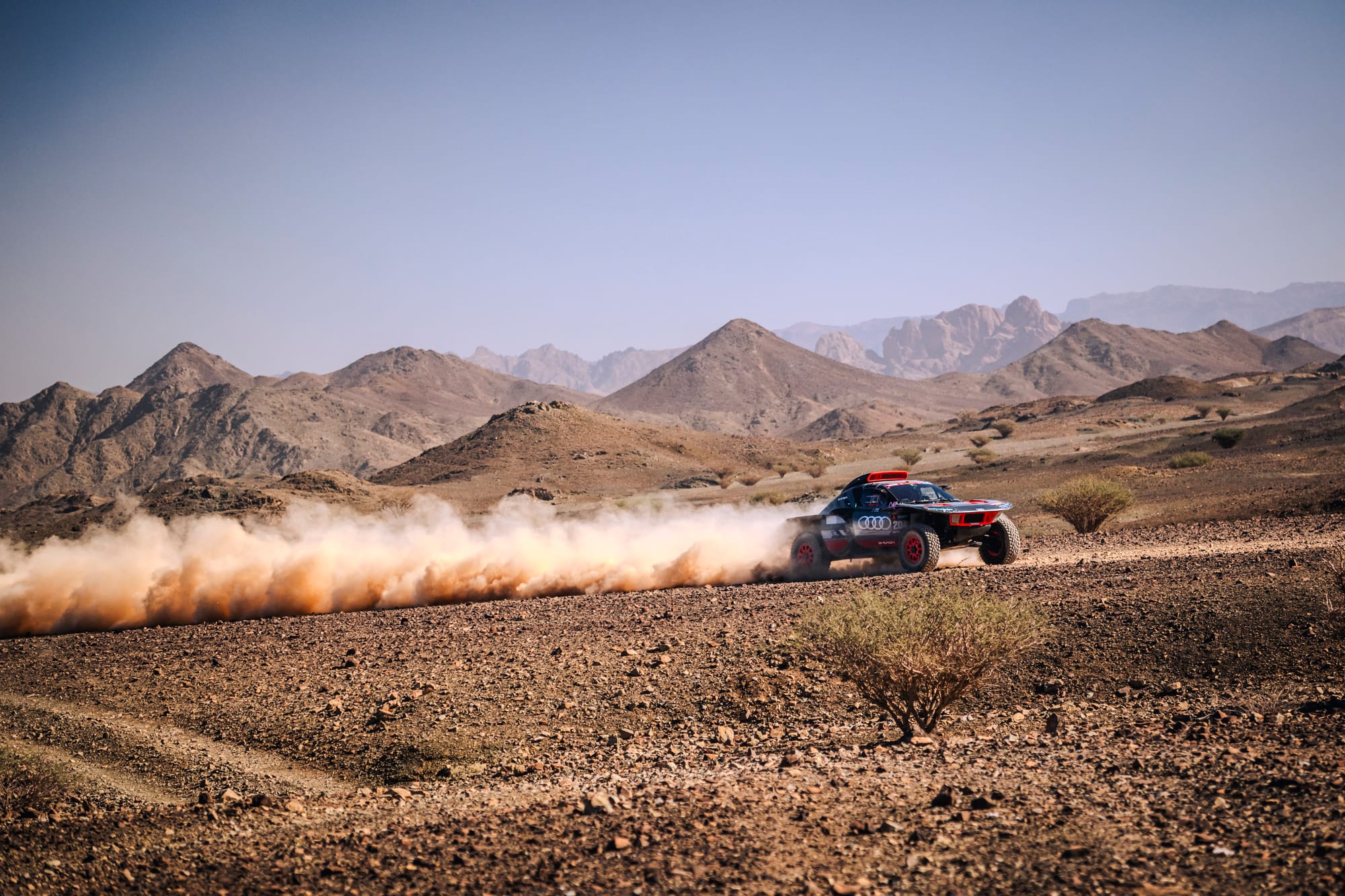
While the car's torque was expected to give it a boost in the dunes that dominated the new-for-2024 '48-hour' stage at the end of week one and the terrain in Saudi Arabia's Empty Quarter at the start of week two, the Audi was a competitive proposition from the start as two-time DTM champion Mattias Ekstrom won the prologue and record Dakar win holder Stephane Peterhansel clinched a 50th stage win two days later to equal Ari Vatanen's record in cars.
Sainz did not hit the same headline peaks early on - his and long-term co-driver Lucas Cruz's approach was demonstrated by the fact they did not win a single stage on the 2024 edition - but he first assumed the lead on day two, was never lower than third in the classification, and ended all of the final eight stages at the head of the order as Audi far exceeded that three-days-and-done prediction from Nasser Al-Attiyah.
But Sainz's lead did come under serious threat from a resurgent Loeb in the second week, only for his challenge to unravel on Thursday's penultimate stage.
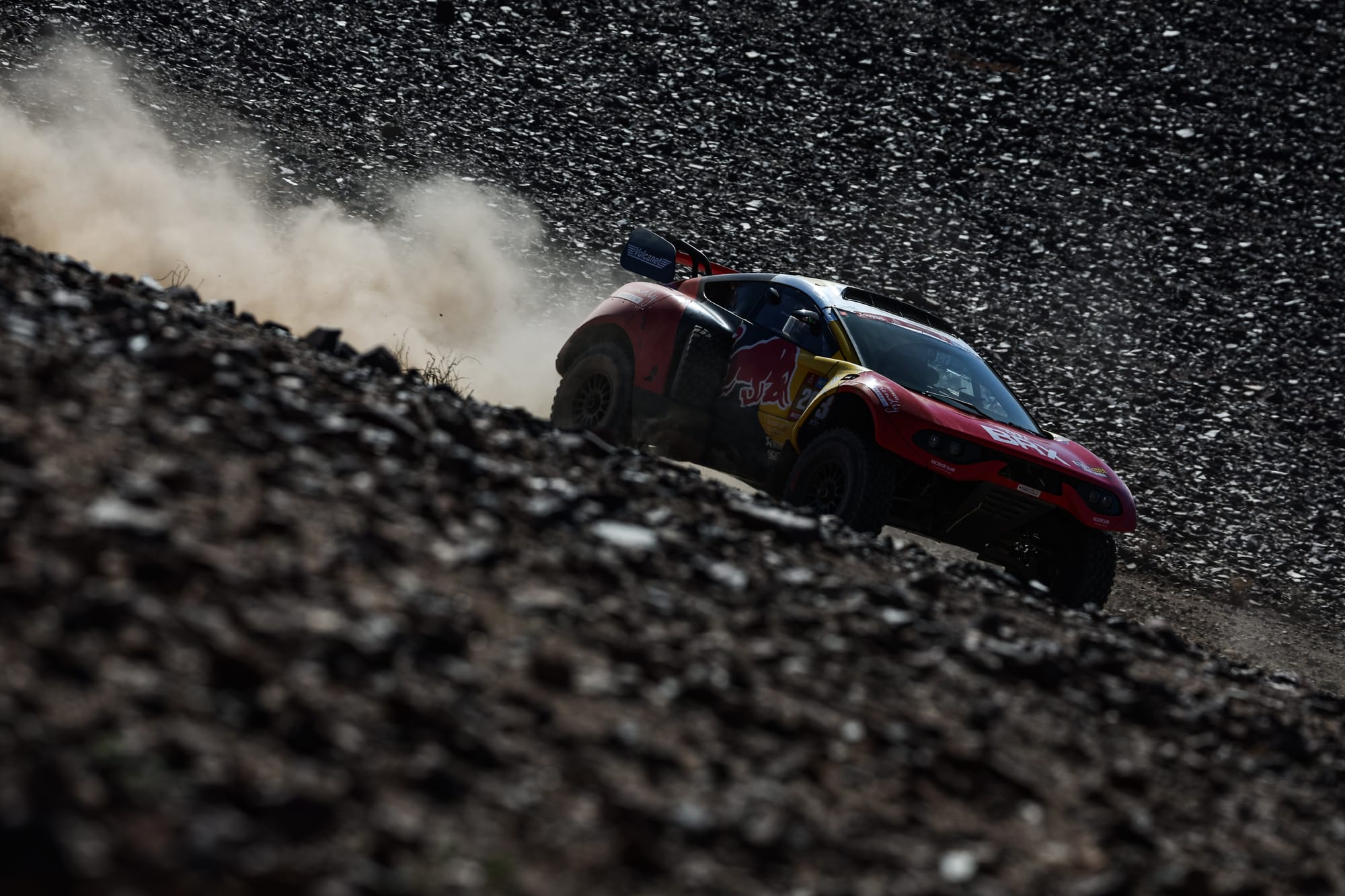
Loeb lost 23 mins to punctures alone on stage three early in week one and, the other side of a victory on stage four, intentionally missed a waypoint timing marker on stage five to secure a more favourable starting position further back in the order for the 48-hour stage, one he duly won.
Two more wins on the next three stages helped Loeb, driving a Bahrain Raid Xtreme-run Prodrive Hunter, reduce Sainz's lead to 20 minutes, and he gained a further seven on Wednesday when Sainz suffered a third puncture on the loop stage that ran from and to the city of AlUla that also hosted the start of the rally.
That required Ekstrom - like Audi team-mate Peterhansel out of the competitive picture by this point - to offer up three of his tyres to the rally leader in order to ensure his onward progress, with Peterhansel then shadowing Sainz to the finish and leaving Ekstrom waiting for the Audi support crew in the desert.
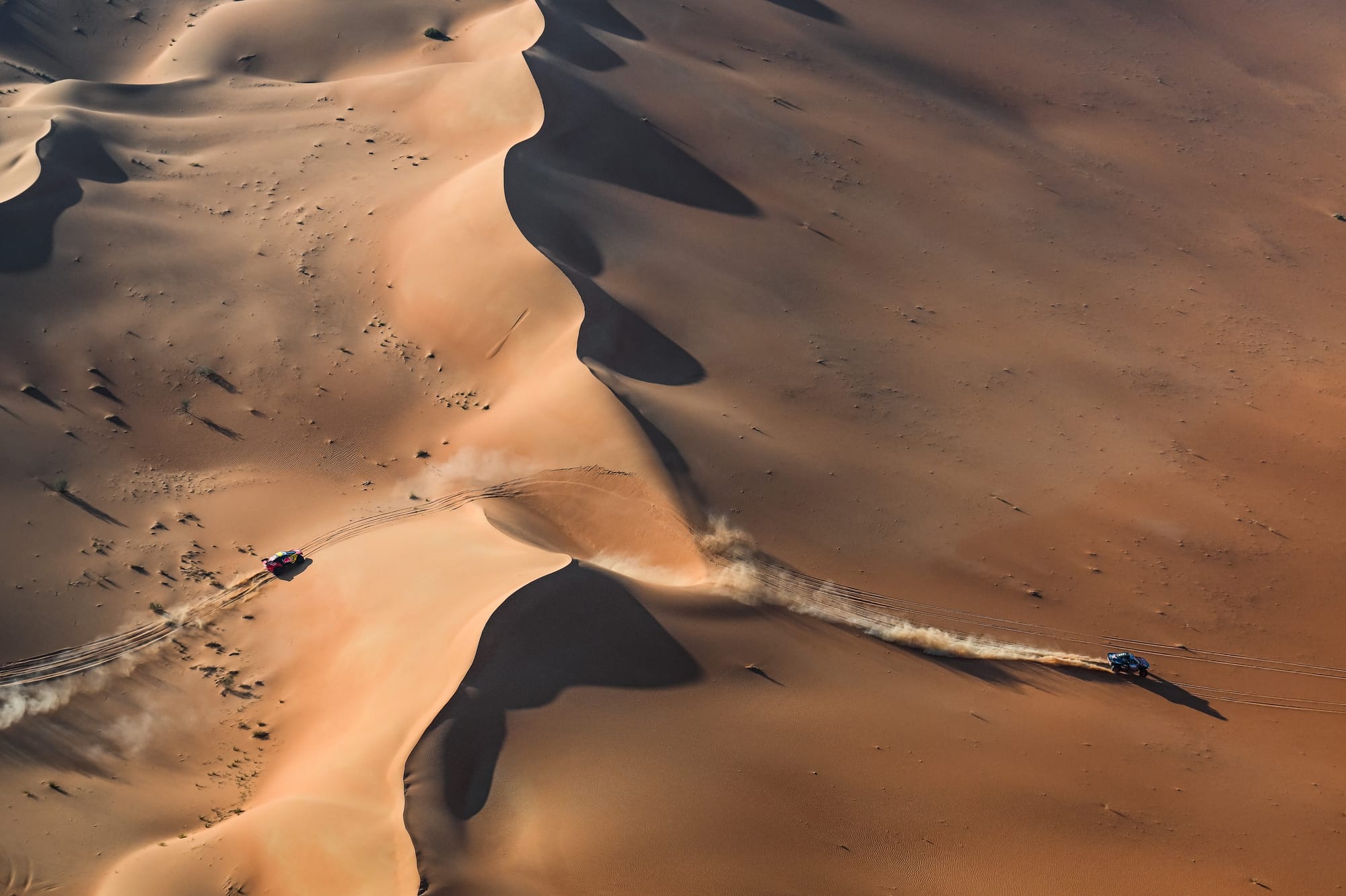
The lead gap had got down to 4m13s in the virtual standings while Sainz was stopped but it never got close to that again, as the following day Loeb's hopes came to an end when he hit a rock at low speed on a particularly treacherous stoney pass and broke his suspension.
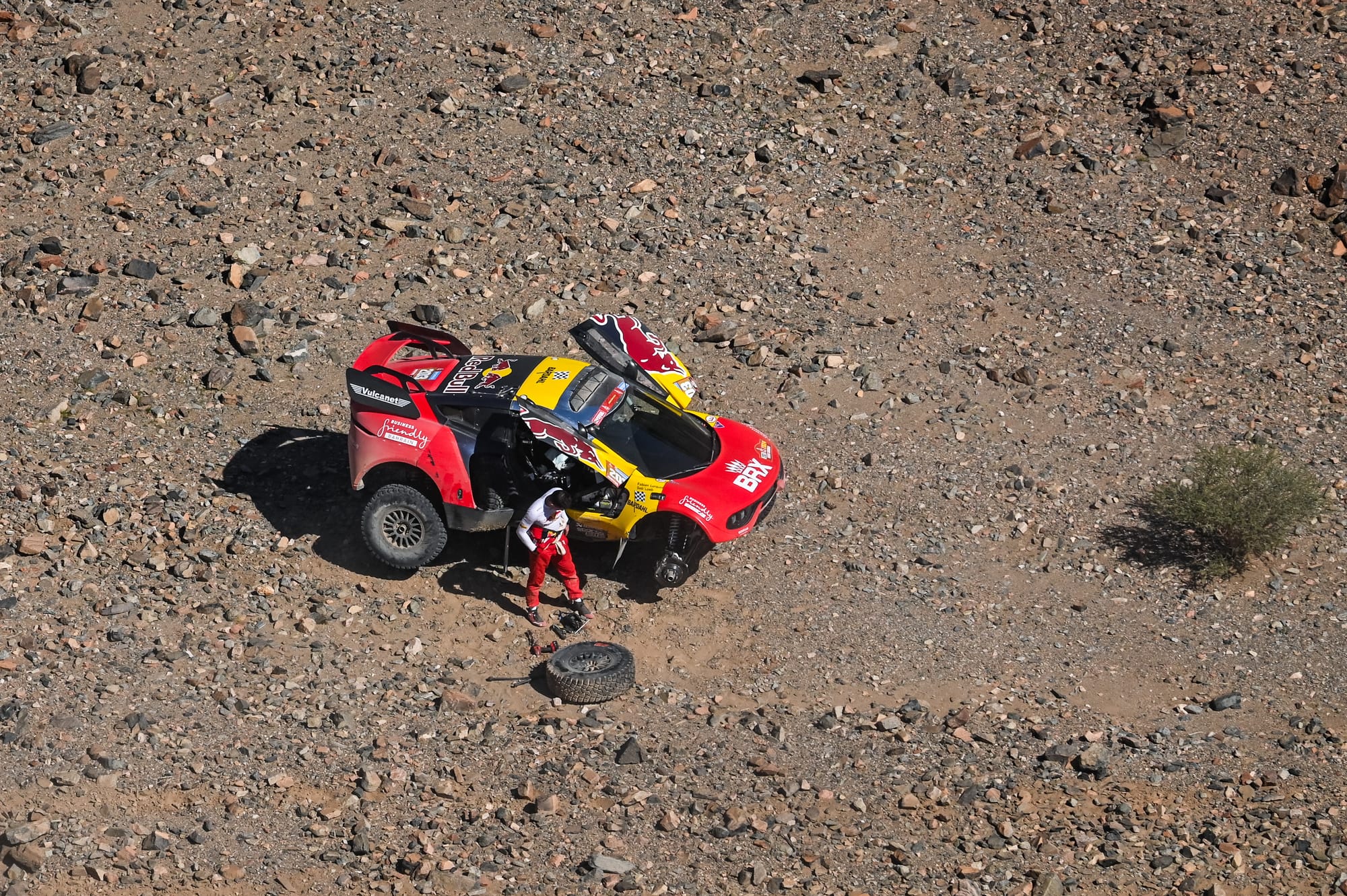
That left Sainz with a lead of almost an hour and a half heading into the rally's shorter final stage, one which he let slide slightly on a comfortable run to the final stop control as he simply ticked off the remaining stage miles. His eventual winning margin was 1h20m25s from the Guillaume De Mevius.
Loeb, who rattled through the final test to a fifth stage win of 2024, fell five minutes short of overhauling the Overdrive Toyota of De Mevius but still recorded a fifth podium in eight attempts by finishing third. His wait to reach the final step will go on for another year, when he teams up with Dacia for its first assault on the Dakar.
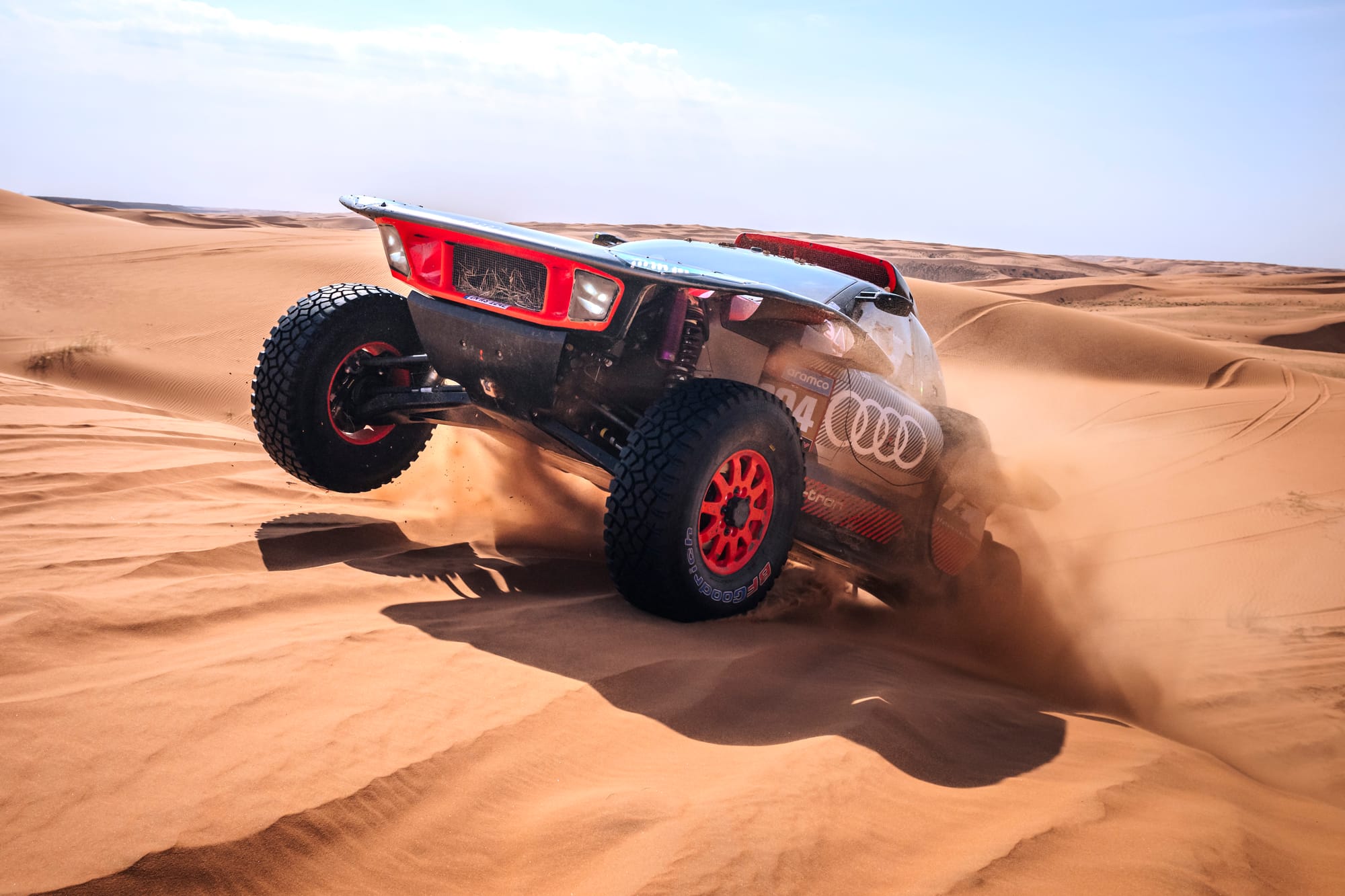
While Loeb's approach struck a stark contrast to Sainz's, Audi's triumph was no fluke. The speed was there and the strategy well-executed - it perhaps just came as more of a surprise given last year's experience.
It therefore marked a much better note on which to conclude its rally raid journey - this will be Audi's last Dakar - than might have been expected before all remaining attention turns to its F1 programme, ahead of its takeover of the Sauber-owned, Stake F1 team-branded entity for 2026.
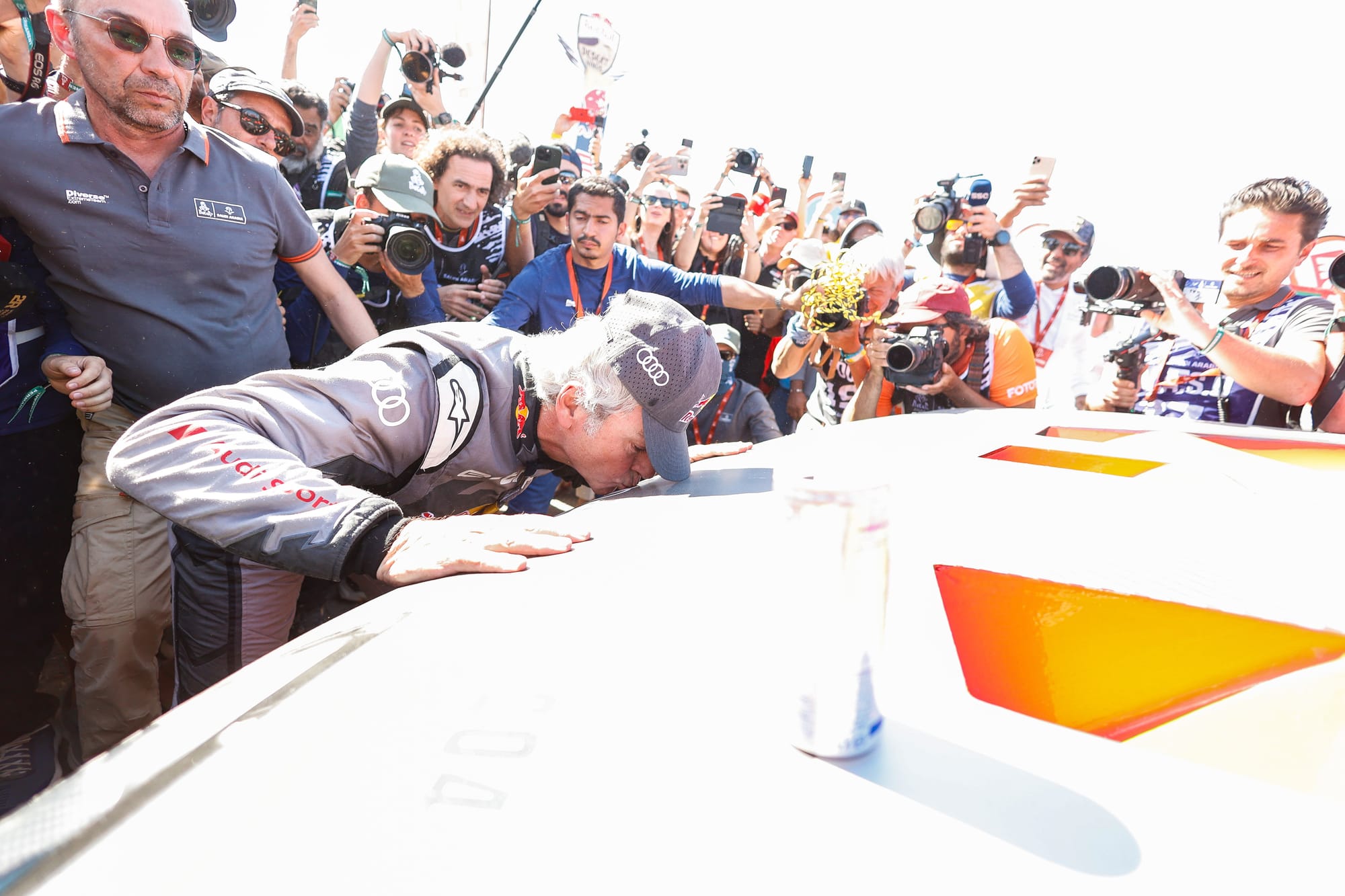
Sainz's involvement in this project has a potential indirect link to Audi's F1 set-up too. His son Carlos Jr is, at present, a free agent for the 2025 and 2026 seasons, and his name has been mentioned in connection with the Audi project as a lead driver option for its debut.
Though the probability is that the current Ferrari incumbent stays put, his contract extension talks reached an impasse in the winter that are believed to centre around both his financial recompense and the length of the agreement. Ferrari is reportedly reluctant to offer more than a one-year extension for 2025 with an option for 2026.
Given Carlos Jr's stock in F1 right now and his relationship with the F1 team's CEO Andreas Seidl, this Dakar triumph and the opportunity for a 'handover' from father to son gives Audi another incentive to try to prise away last year's only non-Red Bull race winner.
For Al-Attiyah, there was a touch of irony to the way his rally unfolded given his pre-event comments.
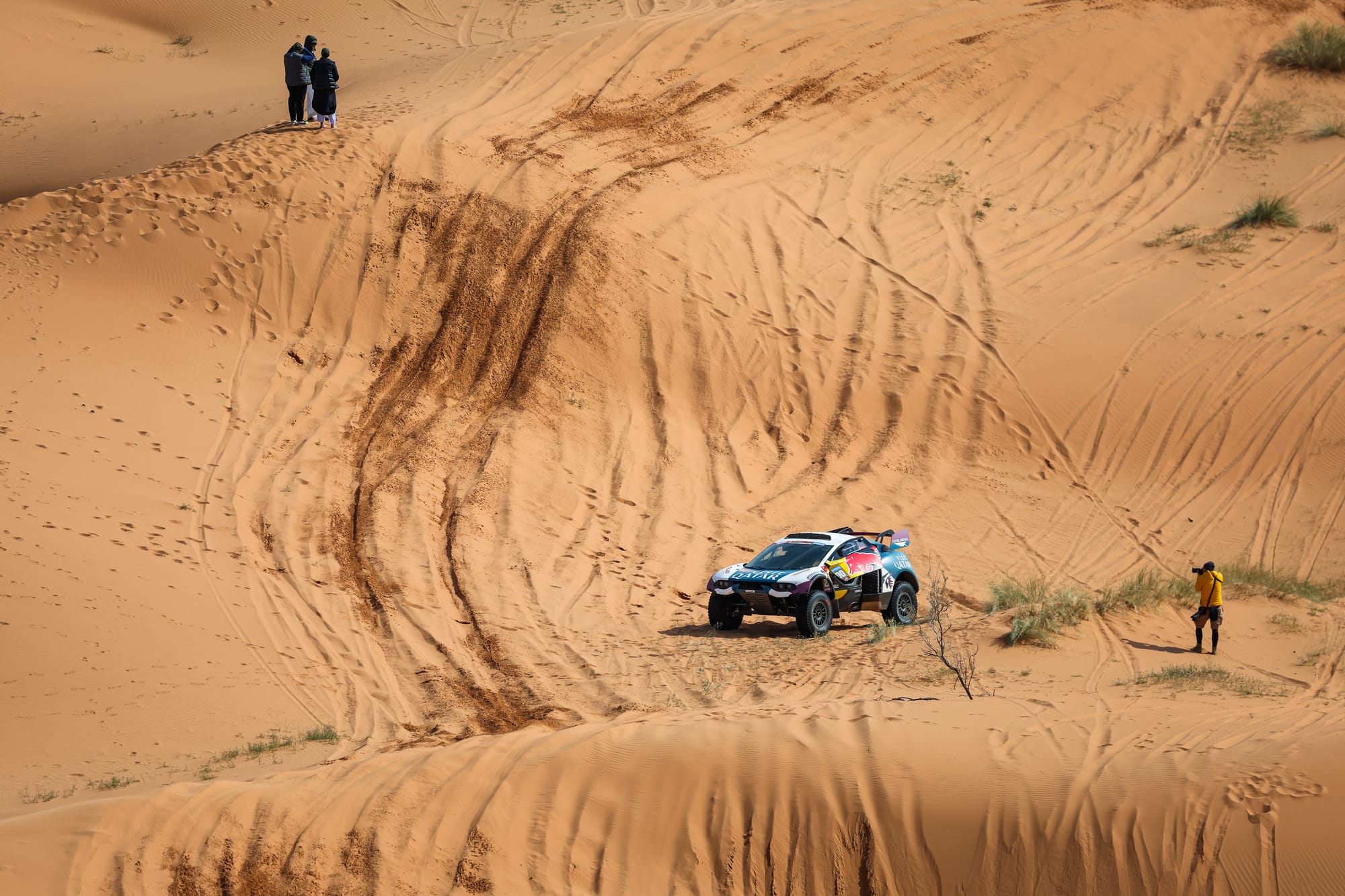
The five-time Dakar Rally winner, who for 2024 had switched from the Toyota set-up he'd won the previous two editions with to Prodrive, found himself inside the top three towards the end of the first week, but like then leader Yazeed Al-Rajhi came unstuck on the 48-hour marathon test.
Once out of the reckoning, Al-Attiyah promised to lend his support to Loeb's bid - the pair had no formal affiliation beyond both driving the Prodrive Hunter - but he suffered an engine issue on stage eight and had barely started the following test when a steering problem reared its head, forcing him to return to that day's bivouac in Ha'il. Once there, he declared "I don't want to get back in this car" and stuck to that promise, taking himself home instead of heading for the start of stage 10 the following day.



